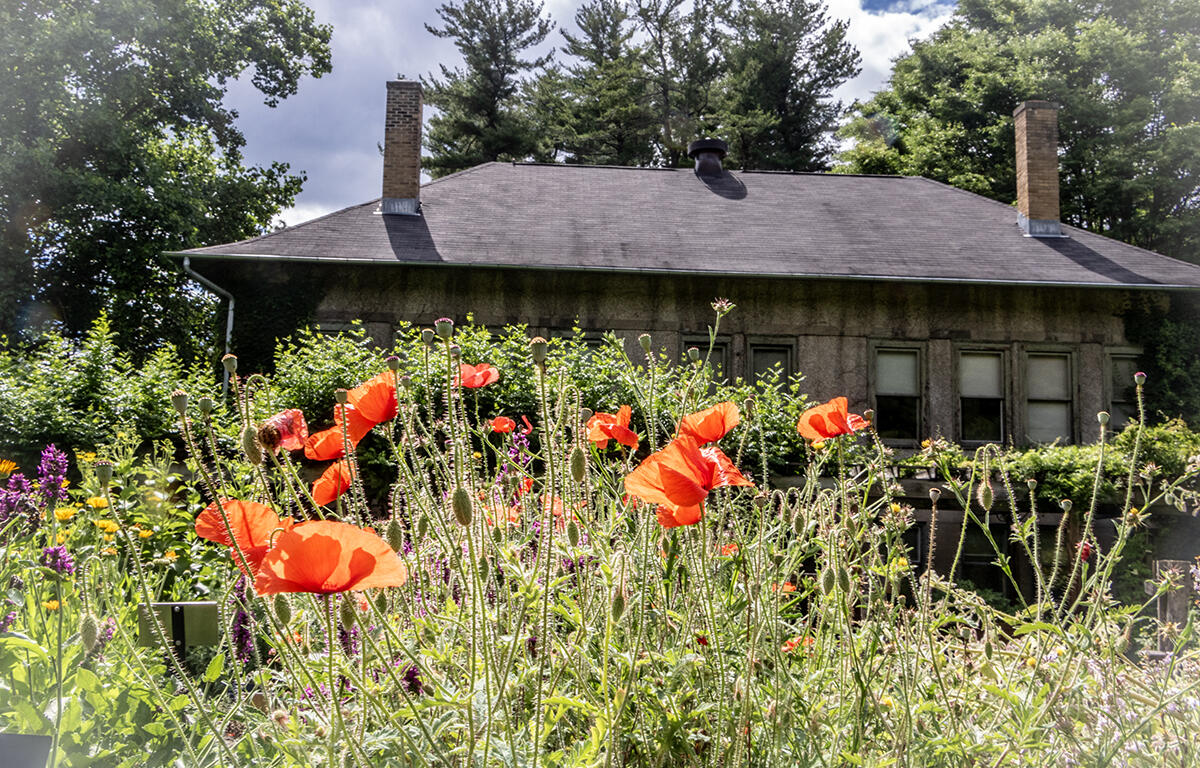ITHACA, NY (CortacaToday) –
1. It’s free. Most hiking trails are, but this is much more than a few trails.
Cornell Botanic Gardens is free to the public. The advantage in contrast to most public parks and trails is that the variety is enough that it can cater to the needs of most anyone. Whether you’re looking for a hike that will get your heart rate up or just wanting to sit and relax among nature, the Cornell Botanic Gardens have a plethora of choice when it comes to scenery: gorges, gardens, woodlands and wetlands.

2. Accessibility
Cornell Botanic Gardens has designated areas that are accessible to anyone, so nature’s bounty can be enjoyed by all. The gardens are equipped with paved walkways, has areas with ramps, and the garden spaces are wide and open. Although some trails and areas are not wheelchair accessible and may be overstimulating for those with autism or sensory disorders, there’s a variety that are. You can explore the interactive map here to know which areas best suit your needs. Fortunately, it’s not the only man-made outdoor space that’s taken into consideration the need and the right for nature to be accessible. There’s been a rise of spaces outside designed to be accessed by those with a range of disabilities—sensory or otherwise, such as the Autism Nature Trail in New York’s Letchworth Park.

3. It’s open year-round from dusk until dawn.
During the cold winter months in Upstate New York, we’re sometimes privileged with milder days, providing the perfect opportunity to step outside and reap the benefits of some fresh air. Cornell Botanic Gardens flourishing plant species are a great reminder of all the things that endure. It’s easy to appreciate the blooming flowers in the spring and summer or the vivacious colors in the fall, but there’s a stillness, beauty, and toughness about trees and other plants that last throughout all the seasons. Mullestein Winter Garden is entirely dedicated to these unique and enduring species, showcasing the beauty of the green among the white snow.

4. Knowledge is empowering, and the gardens are full of it.
Whether it’s your own insightful reflection from a self-guided visit, an audio-tour via your mobile device, or a guided workshop, art class, lecture or special event, seeds of new knowledge are sure to take root. Collaborations across disciplines at Cornell University are frequent. The Lab of Ornithology hosts guided tours where you can learn more about the native species of birds here. Cornell Botanic Gardens even offers botanical art class and culinary classes!

5. You can feel good about the mission of the Cornell Botanic Gardens.
At the heart of everything it does is the mission to preserve the beautiful plant life our planet has to offer. Cornell Botanic Gardens conserves rare and endangered plants, leads natural area conservation, preserves regional diversity, and controls invasive species. Further, the over 10,000 plants and 40 nature preserves provide educational opportunities to students across disciplines at Cornell University. Not only that, but students are active participants in coming up with solutions to threats to the environment, shaping the world for the better through a community effort.

6. You can preserve your memories at the garden with a souvenir from the Nevin Welcome Center.
Not only does the welcome center have a gift shop, but it has an exhibit and rotates bodies of work throughout the year, providing visitors a chance to view art inspired by nature. The Nevin Welcome Center is open Tuesday through Sunday from 10 a.m. to 5 p.m.

7. It’s easy to get to.
It’s accessible through public transportation. The TCAT makes routes that include stops right by the Cornell Botanic Gardens.

8. Emotional well-being
Its 100-acre arboretum holds nine collections of trees including maples, oaks, crabapples, dogwoods, urban trees, nut trees and more. A stroll through the woodsy area, whether alone or with family, surely will help you feel more in sync with your natural surroundings. Green spaces have been shown to make the areas in our brains responsible for emotional regulation calmer, thus reducing anxiety and stress levels.

9. Mental health benefits
A walk in nature can improve cognitive function and memory. Positive mental health outcomes are associated with being outdoors, because of the psychological response it elicits. Distancing from routine activities and allowing the mind to be engaged with what’s in front of it—the serene imagery and sounds of the woods or a garden—allows the mind to rest and reduces negative thoughts.

Looking for more to do around Cornell’s campus? Check out: Inside Look: Cornell’s Wilder Brain Collection.
All photos taken by Grace Condon of Cayuga Media Group.



